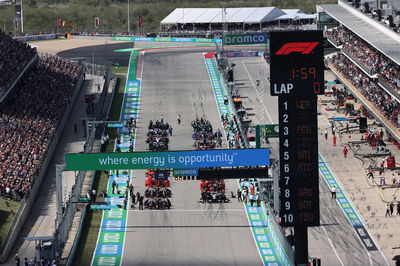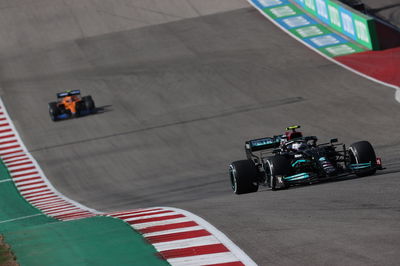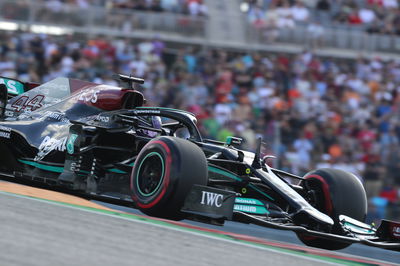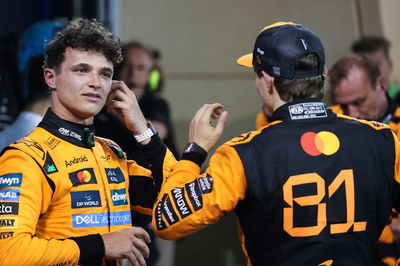F1 needs ‘sensible balance’ to address 'anti-embarrassment' engine penalties

Under the current rules, teams are permitted to use three internal combustion engine, turbocharger, MGU-K, MGU-H and energy store components throughout the course of a season.
The introduction of a fourth component automatically triggers an initial 10-place grid penalty, which reduces to a five-place penalty for each subsequent element used beyond that.
But with 22 races taking place this year, and a record-breaking 23 rounds scheduled for next season, teams are being pushed to the limits.
With F1 determined to find further ways to cost-save, there has been talk that teams could be limited to just two power units per season in the future, something Horner feels would be a mistake.
“I’ve never been a fan of two engines or three engines," Horner said. "For me, you end up pretty much using four in a season anyway so it’s something we need to look at.
“For the future, there is talk of going down to two engines which I think would be a mistake. It needs to be a sensible balance and is something to look at for the future.”
Mercedes in particular has been hit hard this year after discovering reliability concerns relating to its power unit that have already forced Valtteri Bottas to get through six ICE components this season, with the Finn taking grid penalties at three of the past four events.
Teammate Lewis Hamilton was also hit with a grid penalty in Turkey after Mercedes fitted a fourth V6 into his car, and there are concerns he may yet have to take another ICE before the end of the season.
In total, six of the eight Mercedes-powered drivers have taken grid penalties this campaign, with only McLaren’s Lando Norris and Aston Martin’s Lance Stroll yet to exceed their engine allocation in 2021.
Mercedes boss Toto Wolff claimed the current engine penalty system acts as an “anti-embarrassment regulation” in the wake of the reliability woes that plagued Honda when it rejoined F1 with McLaren in 2015.

While the current penalty system has proved frustrating for fans and teams alike, Wolff conceded F1 is yet to find a better solution.
"I think the penalty system on power units is pretty robust," he said. "Because what we need to avoid is that we are building power units in a way that they perform at peak performance for only a few races.
"And if you change regulations, and you say, 'okay, there is no grid penalty for the driver, but just constructor points,' it will still mean that teams, if you're in a fight for a driver championship, will just throw engines at that car.
"And I think if we come up with good solutions definitely it is worth looking at. It's confusing for the new fans why, out of the driver's responsibility, an engine penalty puts him at the back of the grid, or 10 or five places away. And that's clearly not great, but I haven't got the solutions.”
McLaren team principal Andreas Seidl admits the current system is not ideal but accepts that competitors simply have to deal with the regulations as best as they can.
"I obviously get the point that it is not ideal having all these penalties," he said.
"But to be honest, I do not really see a straightforward solution to that. Because for example if you will decide let's go to four engines engine instead of three we will end up all with five engines, because we would just crank up the engines.
"In the end, it just shows that all the manufacturers teams are pushing each other so hard that we all push the technology we're using to the absolute limit or beyond, and that's what ends then in issues or problems. So we simply have to accept that at the moment, and get on with it.”
Alpine executive director Marcin Budkowski has experienced both sides of the fence following a stint as FIA technical chief and believes the subject needs to be properly debated in the F1 Commission.
"Some people hate grid penalties and I haven't met a fan of grid penalties yet," Budkowski said.
"But having been on the on the other side of the fence at the FIA and then in the team I thought for years about an alternative that would be better than the current one, and I haven't found one. So it doesn't mean there isn't one, but it's the least worst case.
"It's a debate we need to have in the F1 Commission and those kind of institutions to see where do we want to place the cursor? Today to increase the number of engines means increasing costs for everybody.












